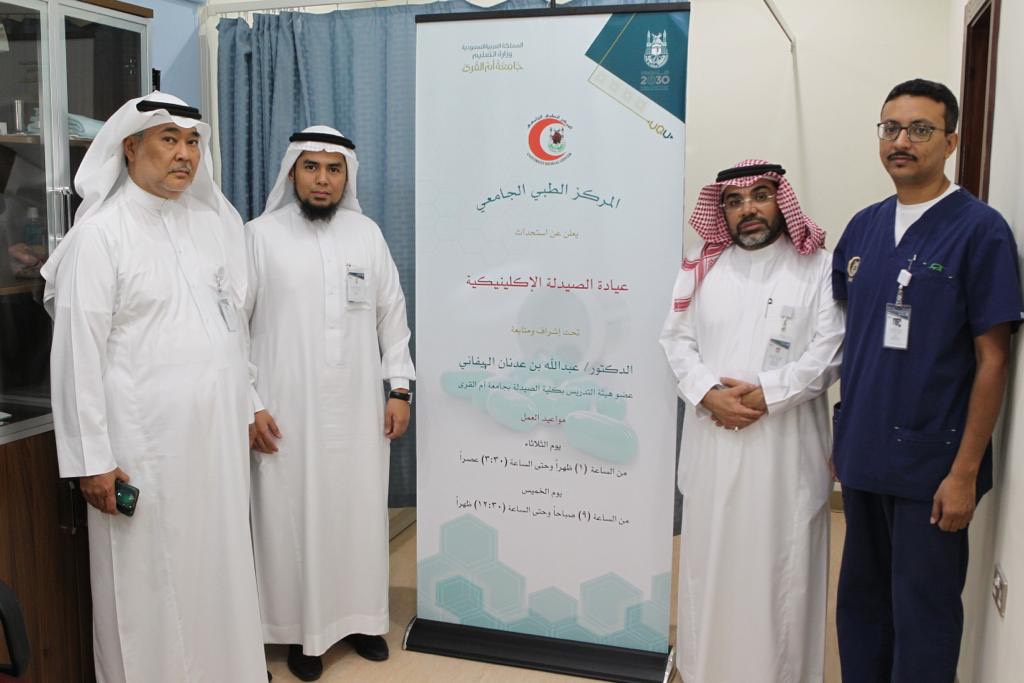Umm Al-Qura University
- Institutional Communication Department

Within the framework of the continuous collaboration with UQU medical colleges, the University Medical Center announced the establishment of the “Clinical Pharmacy Clinic.” The clinic has aimed to provide pharmaceutical care for all the Center’s UQU visitors and those who have been entitled to be treated there.
In this regard, Dr. Yasser bin Hassan Bahakim, General Director of the Center, stated that the “Clinical Pharmacy Clinic” was considered part of the modern health services that contributed to the enhancement and development of performance in line with the Saudi Vision 2030. He added that the clinic helped guarantee the continuity of therapeutic and preventive services provided to all the Center’s visitors. In addition, it was determined that work in the clinic would be supervised and followed up by Dr. Abdullah bin Adnan Al-Haifany, Staff Member at the College of Pharmacy- UQU, each Tuesday and Thursday.
On the other hand, Dr. Bahakim extended sincere thanks and appreciation to Prof. Abdullah bin Omar Bafil, UQU President, for his great support for and concern with the Medical Center. Moreover, he hailed the concern and follow up provided by Dr. Yasser bin Suleiman Shosho, UQU Vice President, to the Center’s work and service, which contributed to the development of the services provided to all UQU students and affiliates. Dr. Bahakim also extended deep thanks and appreciation to the College of Pharmacy, represented by Dr. Abdullah Al-Haifany, for his contribution to ensuring the continuity of the quality of pharmaceutical care services provided to all the Center’s visitors.
On his part, Dr. Abdullah Al-Haifany said that the objectives of this clinic’s establishment included spreading awareness among and training of patients with chronic diseases to usage methods of medicines. He added that the clinic aimed to follow up the patient's response to the treatment prescribed by the relevant medical tests and according to the plan of the treating physician, and in a way that achieved the maximum benefit of the treatment and reduced the exposure to side effects of drugs or inaccurate doses. In addition, Dr. Al-Haifany said that this clinic might be utilized in the future in training Pharmacy College intern students.
In the same context, Dr. Al-Haifany confirmed that the existence of such service in the University Medical Center was regarded as a paradigm shift on the level of medical services. Moreover, he said that the clinic played a role in saving a lot of time and effort for patients with chronic diseases, who needed to re-disburse medicines on a regular basis. This would be via regular follow-up in the clinic.